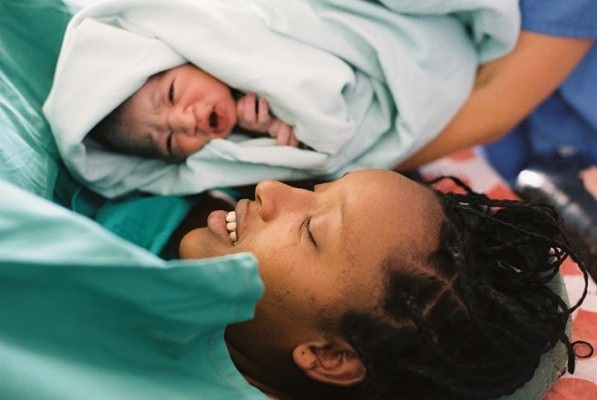March 24th
It all comes around so fast and the last few days have been a whirlwind of activity (my excuse for not posting my blog very regularly this week) as I try to finish things off and say my goodbyes.
I finished my OR teaching module with my students including giving them a 2-hour test paper last week and hearing their project & marking presentations. It is part of student culture here (it would seem) to whine about everything including questioning the grading so I received cries that my test was too difficult which fortunately I was able to counter by pointing out that it was so difficult that one student had managed to achieve 89%- they were able to see that this fact that not supportive of their argument. There was only one student who failed who sadly really struggled with the English that the course has to be taught in- it was sweet that it was not she who questioned her grade but some of the men in the group who have tried hard to help her to get through- there is no doubt that they will be good team-workers in the future!
I did my last caesarean section before handing over my small remaining supply of good uterine sutures- I managed to make these last as in the first week I decided that it would be a good discipline given the serious resource lack (sutures are one of the most expensive items the hospital has to purchase and are always in short supply resulting in compromises on the best suture choice on many occasions) to adapt my technique to use only one suture for the uterus rather than the wasteful two sutures I was trained to use. This was perfectly possible in most cases and should lead me to question my practice in the UK when I get back but I have a suspicion on this one I will rapidly slip back into my profligate ways!
The caesarean was an unusual one of Gimbi and served as a reminder of what I will be going home to. I have mentioned before that women here labour silently and that we have virtually no pain relief on offer-the woman in question had unusually needed induction as she had not gone into labour after her membranes rupture (due to the infection risks to the baby here we don't manage them conservatively for very long) and additionally the baby had passed meconium which can be a sign of fetal distress or of infection (this is uncommon in the UK but for reasons I can't explain is very common even in babies that turn out to be well). Unfortunately the labour progressed slowly and perhaps due to the position of the baby, she was in a lot of pain throughout the labour. I was called to see her a number of times through the night when I advised that we should keep going as she was making progress albeit. By 8am she was begging for a caesarean- this is something that I encounter all the time in the UK but was a new experience in Gimbi where women expect and want to deliver vaginally. The woman's distress was also leading the midwives to question whether she needed delivery by caesarean and also causing a reluctance to continue the medicine (oxytocin) that she needed to keep the contractions going.- the baby thankfully was unconcerned by the whole process with no suggestion of any problem In the UK the management in this situation is easy-I would have called upon the expertise of my anaesthetic colleagues to perform an epidual and relieve her pain but in Gimbi this is not an option. I managed to persuade the woman and the midwives that we should continue for a few hours more but agreed a strict time limit. Needless to say the lack of oxytocin combined with the high stress levels of all involved conspired to result in no significant progress and so delivery by caesarean was arranged. This was uncomplicated, the baby was average size and in a normal position so the true indication for the operation was lack of pain relief resulting in maternal, midwife and obstetrician distress!
Sadly we had another death of a 40-year old woman today. She was not pregnant but was a gynaecology patient. An operation for prolapse (a vaginal hysterectomy) had been performed in another hospital some distance from Gimbi. Unfortunately after discharge from hospital she had been unwell but had stoically assumed that this was normal after an operation and thus failed to seek help. On arrival in Gimbi she was seriously unwell with all the appearances suggesting severe infection originating from a problem in her abdomen. We resuscitated her and performed a laparotomy (an exploratory operation to find out what the problem was). The operation revealed that a hole had been made in her bladder during the vaginal hysterectomy and she had been leaking urine into her abdomen (5 litres of urine has accumulated). This was repaired but sadly she had arrived with us too late and in the absence of any intensive care she died 12hours after our operation. Without a doubt a similar post-operative complication could occur in the UK but the idea that it would go undetected for a week after surgery is unimaginable-thus women are not only more likely to have prolapse (large families from a very young age, poor nutrition, exceptionally heavy manual labour) but the risks of surgery are proportionally greater. Just how great is impossible to say as there is no recording system for post-operative complications-I asked if we should let the people in the hospital who performed the operation know but the response to this suggestion was negative suggesting that this was not considered necessary or desirable. An impossibly heavy price to pay for the attempted cure of a non-life threatening condition.
It was hard saying goodbye to Tekle- his guidance when I first started in Gimbi three months ago was invaluable and without it I can't imagine I would have ever settled in and found my niche. It is also very hard for him to say goodbye as Steve is leaving at the same time as I am and so he will return to his solitary 1:1 rota. The tragedies that occur on a daily basis here are so much easier to cope with when you can talk to other people about them and must be hard to reconcile when you are working alone. There are a number of examples where we have worked together (mental brain-storming and physical presence) with very sick women and achieved good outcomes that might have happened anyway but it seems likely the team working helped. At the current time there are no specific plans for other Obstetrican volunteers but I will definitely be doing my best to encourage others to follow me in going to Gimbi as an experience with mutual benefits to them and the women cared for by Maternity Worldwide in Gimbi.


No comments:
Post a Comment